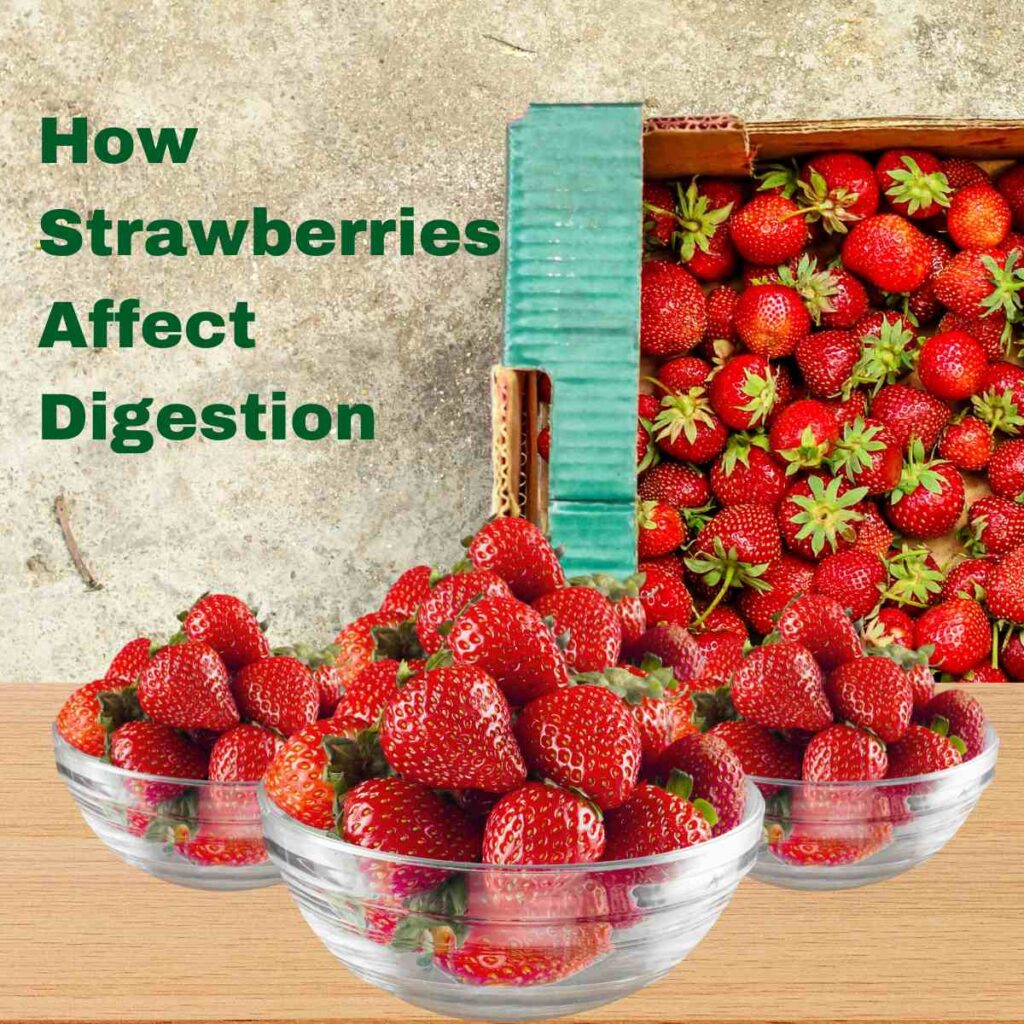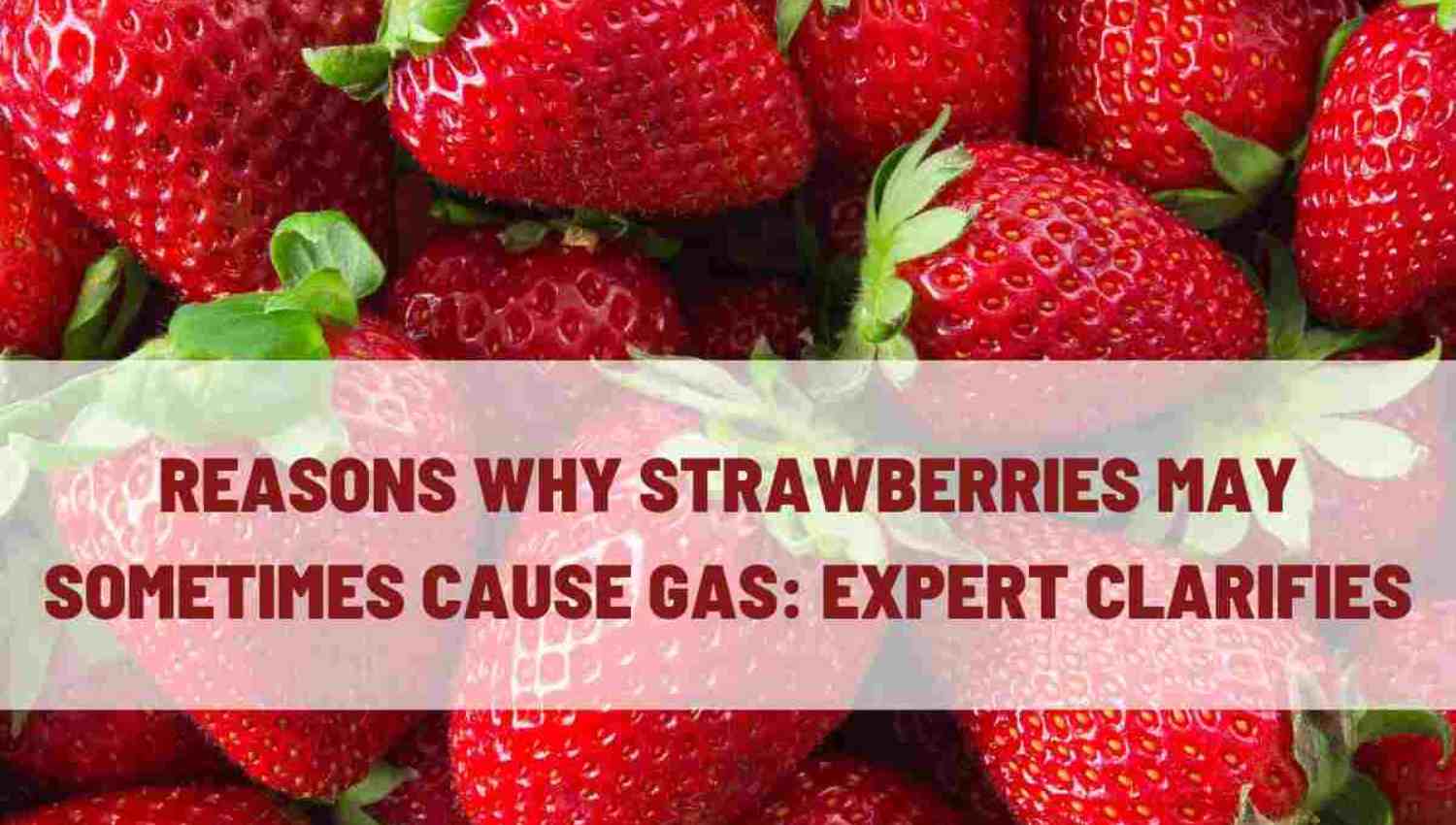Strawberries are not only a delightful treat but also a powerhouse of essential nutrients. However, consuming them in excess can sometimes result in bloating and gas for certain individuals. Here’s what you need to know.
A favorite among fruit lovers, strawberries are valued for their sweet and tangy taste and their contribution to a balanced diet. Rich in nutrients, they offer several health benefits, including potential disease prevention. However, not everyone digests them the same way. For some, excessive strawberry consumption can lead to digestive discomfort. If you’ve noticed such effects, you’re not alone. The our team consulted Dr. Narendra Shetty, Chief Wellness Officer at Kshemavana in Bengaluru, to better understand why strawberries might trigger gas and bloating and how to enjoy them safely.
Table of Contents
How Strawberries Affect Digestion
Packed with vitamins, minerals, and antioxidants, strawberries provide key nutrients such as vitamin C, fiber, folate, manganese, and potassium, all of which support overall health. While their high fiber and water content can aid digestion, overconsumption may lead to bloating.

Dr. Shetty explains that strawberries contain raffinose, a complex sugar that can be difficult for some individuals to break down, leading to gas and bloating. This is particularly common in those with sensitivities or mild intolerances to the fruit.
Although fiber is generally beneficial for digestive health, consuming excessive amounts can strain the digestive system, causing discomfort. Additionally, pairing strawberries with other gas-producing foods can intensify bloating.
Tips for Eating Strawberries Without Discomfort
- Practice moderation: Avoid excessive consumption to prevent digestive issues.
- Pair wisely: Eat strawberries with digestion-friendly foods like yogurt or ginger.
- Choose ripe strawberries: Fully ripened strawberries are often easier to digest.
Other Fruits That May Cause Similar Digestive Issues
Fruits like apples, pears, cherries, and apricots contain complex sugars such as sorbitol and fructose, which may trigger bloating in some people. Sorbitol, a sugar alcohol, can draw excess water into the intestines, leading to discomfort, especially for individuals with sensitive digestion or Irritable Bowel Syndrome (IBS). Similarly, consuming large amounts of fructose can be difficult for the body to absorb, contributing to gas and bloating.
To reduce digestive discomfort, it’s best to consume these fruits in moderation, pair them with easily digestible foods, and opt for well-ripened varieties.
Conclusion
Berry are a nutrient-dense fruit that can greatly benefit overall health. However, for some individuals, excessive consumption or underlying intolerances can lead to bloating and gas. While strawberries generally promote good digestion, moderation is crucial. If persistent digestive issues occur, consulting a healthcare professional for personalized guidance is recommended.
Frequently Asked Questions (FAQ)
1.) List of foods that cause gas and bloating
Foods that commonly cause gas and bloating include beans, lentils, broccoli, cabbage, onions, garlic, dairy products, carbonated drinks, apples, pears, and artificial sweeteners. These foods contain fiber, complex sugars, or lactose that can be difficult to digest for some individuals. Consuming them in moderation and pairing them with digestion-friendly foods can help reduce bloating.
2.) How to avoid gas from potatoes
To reduce gas from potatoes, soak them in water before cooking to remove excess starch, cook them thoroughly, and pair them with digestion-friendly spices like cumin or ginger. Avoid eating them with other gas-producing foods like beans or dairy for better digestion.
4.) Does pineapple cause gas
Pineapple can cause gas in some people due to its natural sugars (fructose) and enzymes (bromelain), which may lead to bloating. Eating it in moderation and pairing it with easily digestible foods can help minimize discomfort.


2 thoughts on “Reasons Why Strawberries May Sometimes Cause Gas: Expert Clarifies”